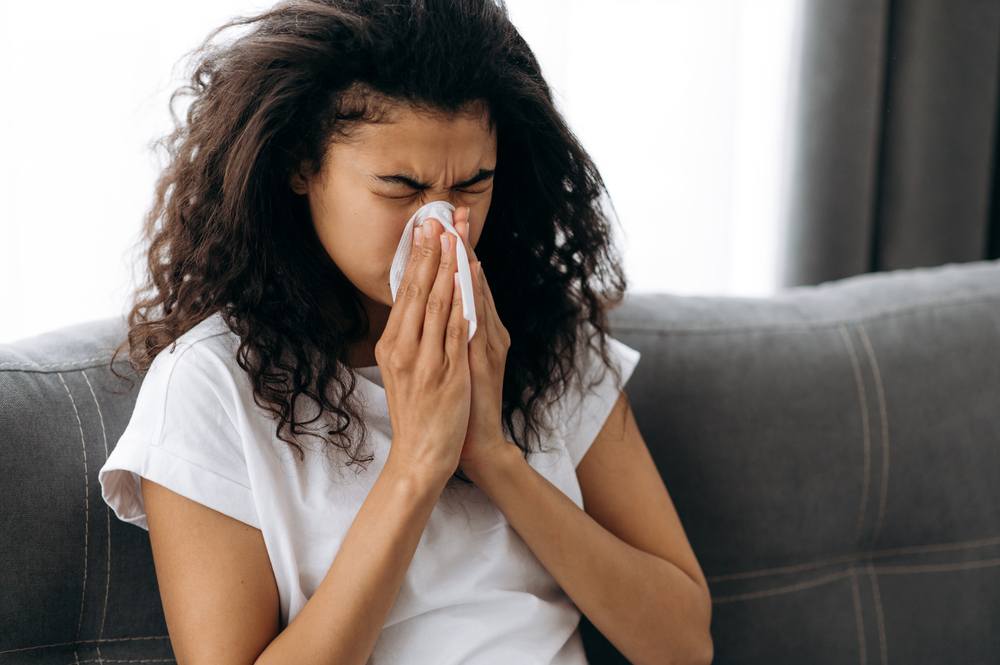It’s a mystery that has puzzled families, classrooms and entire office buildings—why do some people seem to catch every sniffle, while others glide through cold season untouched? While most of us stock up on tissues, herbal teas and hand sanitizers at the first sign of flu season, there’s always that one person who seems immune. Understanding why some people rarely catch colds could unlock better ways to protect your own health.
This is not just about strong willpower or lucky genes. Science reveals a fascinating mix of biology, behavior and even mindset that shields certain individuals from viral infections. Let’s uncover the truth behind this immune system mystery and see what sets these individuals apart.
Genetic advantages
Some people are born with immune systems that are better equipped to fight off certain viruses. Specific genes influence how the body detects and responds to viral invaders. Researchers have found that certain genetic variations help the body recognize cold viruses faster and destroy them more effectively.
For example, variations in the HLA (human leukocyte antigen) genes influence immune memory. People with more diverse HLA genes tend to mount quicker, stronger defenses when exposed to viruses. In short, their immune systems are preloaded with more “wanted posters” for pathogens, helping them fight off illness before symptoms even appear.
But having the right genes doesn’t mean someone is invincible—it just gives them a head start in the battle.
Lifestyle factors strengthen immunity
While genetics lay the foundation, the immune system’s real strength is built over time. Those who seem to never catch colds often have habits that continuously train their immune response.
Regular physical activity, adequate sleep and a diet rich in vitamins and antioxidants all play roles in enhancing immunity. Exercise increases circulation, which helps immune cells travel more efficiently throughout the body. Sleep allows the body to produce cytokines—proteins that regulate immunity and inflammation.
Nutrient-rich diets provide the fuel immune cells need to operate at their best. Vitamin C, zinc and vitamin D have all been shown to improve immune function. It’s not about one magic supplement but a pattern of consistent nourishment and recovery.
The benefit of previous exposures
Believe it or not, frequent exposure to viruses can actually toughen up your system. Teachers, health care workers and parents of young children are often surrounded by germs, but many don’t get sick every time. That’s because their immune systems have encountered similar viruses repeatedly, developing a kind of adaptive immunity.
Think of it like a mental workout—each encounter with a cold virus builds muscle memory. The immune system becomes better at recognizing the signs of an attack and can react before a full-blown illness sets in. These micro-exposures often go unnoticed but contribute to an internal army that’s always ready.
Mental health influences physical defense
One of the most overlooked factors in cold prevention is the mind. Chronic stress, anxiety and depression have been shown to suppress the immune system, making it more difficult for the body to defend itself against illness.
People who maintain strong emotional health, practice mindfulness or have strong social networks often report fewer colds. It’s not magic—it’s biology. Stress causes the body to release cortisol, a hormone that lowers the production of infection-fighting white blood cells.
Even a positive mindset can impact how the body deals with viruses. Studies suggest that people who feel more optimistic about their health often experience milder symptoms or no symptoms at all, even when exposed to the same virus as someone else.
Hygiene habits create barriers
Those who rarely get colds often practice excellent hygiene without realizing how impactful it really is. Frequent handwashing, avoiding touching the face and cleaning commonly touched surfaces are powerful tools against viral transmission.
Many colds spread through direct contact, so minimizing exposure through clean habits naturally reduces the chance of infection. While not foolproof, these behaviors are often the quiet secret behind someone’s never-get-sick reputation.
In shared spaces like public transportation, offices or schools, small precautions like using hand sanitizer, not sharing drinks or wearing masks during peak seasons can go a long way. The cleanest hands often belong to the healthiest people.
Gut health connections
The gut houses nearly 70% of the immune system, and the state of gut health can greatly affect susceptibility to illness. Those who rarely catch colds often have a robust population of beneficial gut bacteria that supports immune responses.
A healthy gut microbiome helps regulate inflammation and boosts the production of antibodies that destroy viruses. Diets rich in fiber, fermented foods and prebiotics feed this microbiome, creating a thriving internal ecosystem that strengthens immune defense.
Probiotics found in yogurt, kefir and supplements are linked to fewer respiratory infections. People who nourish their gut often enjoy stronger immunity without even trying.
Environmental factors
Where someone lives and works has a big influence on their exposure to cold viruses. Those who spend more time outdoors or work in well-ventilated spaces may avoid the recycled air and surface germs common in offices or public transit.
People who live in areas with low pollution and high air quality may breathe fewer irritants that weaken the lungs and immune system. Cleaner air supports the respiratory tract’s natural defenses, such as mucous membranes that trap and eliminate viruses before they enter the bloodstream.
It’s not just about luck. It’s about environment—and some people’s environments give them an extra layer of protection.
Early intervention matters
One key difference between those who get sick and those who don’t is response time. People who seem immune to colds often catch early signs—slight fatigue, a scratchy throat, subtle body aches—and take immediate action.
They may increase hydration, get extra sleep or take a day off to rest. This early attention gives their immune systems the time and resources to fight back before symptoms escalate. In contrast, ignoring early signs often leads to full-blown illness.
Responding early isn’t just reactive—it’s proactive health care at its finest.
Building your own resilience
While not everyone is born with virus-resistant genes, many of the behaviors and habits that protect against colds are within your control. Improving diet, managing stress, staying active and practicing good hygiene can build up your defenses over time.
You may not become one of the rare few who never catches a cold, but you can reduce the frequency and severity of your symptoms—and that’s a powerful outcome.
So next time you notice someone breezing through flu season without a single sniffle, remember: it’s not always luck. It’s a lifestyle, a mindset and a collection of invisible choices that make all the difference.
The real reason some people rarely catch colds is a combination of biology, behavior and circumstance. From genetics and gut health to emotional resilience and clean habits, the cold-free club isn’t made up of superheroes—it’s made up of individuals who unknowingly make health-conscious decisions every day.
Understanding these elements can help you improve your own immunity. The truth is, health isn’t about shortcuts—it’s about consistency. If you apply even a few of these principles, you may soon be the one others admire during cold and flu season.












